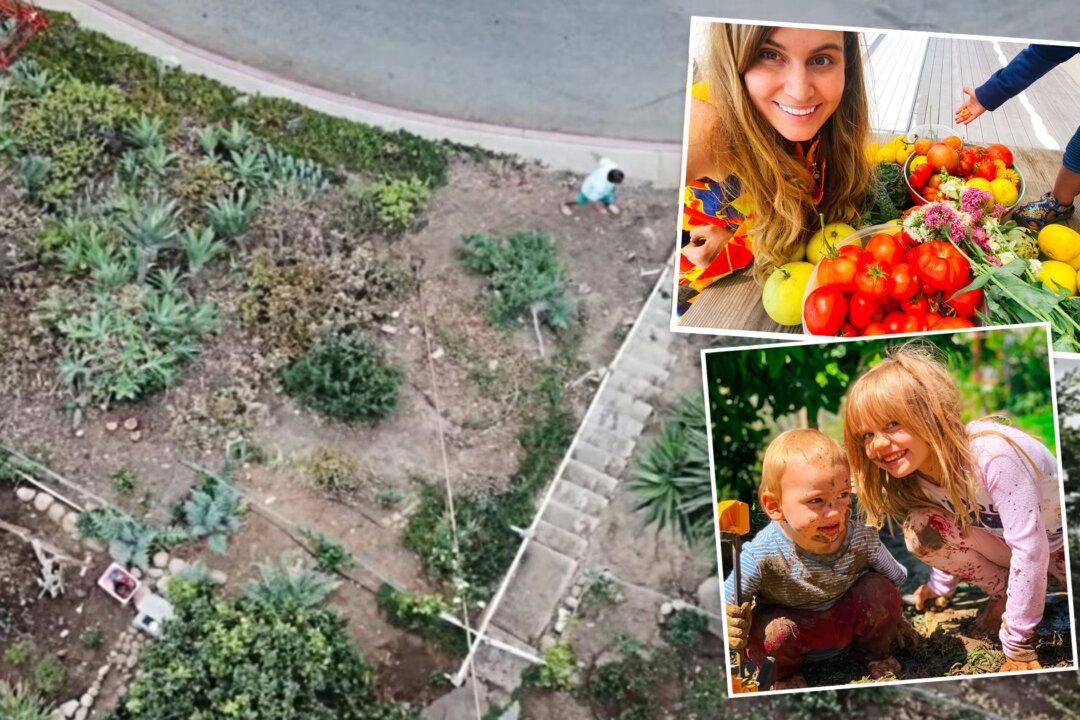Two years ago, a California family took up a huge garden project to beat the pandemic blues. Together, they transformed a scrubby hill into a food forest that’s now providing plenty of fresh food and fruits to their friends and neighbors.
Mom-of-two Taylor Raine Koutroumbis and her husband, Stelios, worked hand in hand during the 2020 lockdowns, making their dream project come to fruition. It wasn’t just any old makeover. The half-acre area of their property was set on a hillside and was completely overgrown. So much so, that their neighbors had taken to calling their home “the jungle.”






